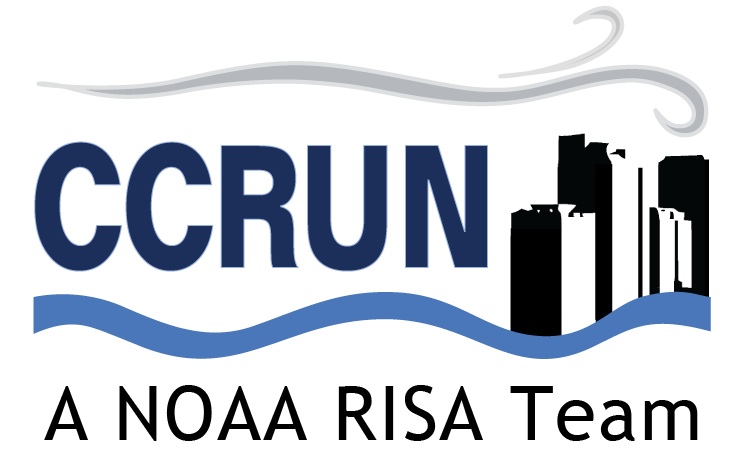Past Seminars
The focus of the CCRUN seminar series is on urban solutions to global problems associated with increasing temperature and sea level rise, precipitation variability, and greenhouse gas emissions. We are interested in the implications of such changes on the complex infrastructure of intensely developed landscapes, and on the health, well-being, and vulnerability of the people who live in them.
Use the links below to view archived recordings of past seminars. All videos are available on our YouTube page, please subscribe for the latest updates.
May 2, 2023
A Climate Resilience Research Agenda for the Greater Philadelphia Area
March 1, 2023
Mitigation and adaptation emissions embedded in the broader climate transition
February 1, 2023
Military Emissions, Military Spending & the Climate Emergency
December 7, 2022
The Passive House Network
October 26, 2022
Resilient Vision for a Historical Park (FDR Park Planning in South Philadelphia)
September 7, 2022
Summer Urban Heat Projects in Philadelphia and Charleston
May 4, 2022
Climate Change and Climate Induced Conflict and Migration in Afghanistan
April 6, 2022
Community Options and Considerations for Adapting to Flooding
February 2, 2022
Community Resilience Hubs
October 6, 2021
A Coalition Around Heat Research in Charleston, South Carolina
September 14, 2021
Code Red for Humanity: What the latest IPCC report means for the CCRUN region
June 2, 2021
Understanding, Communication and Addressing the Challenge Climate Change Presents Municipalities
May 5, 2021
Data Services from the Northeast Regional Climate Center
April 7, 2021
Environmental Justice Research and Action
March 3, 2021
Data and Tools for Climate and Flood Impacts and Adaptation Planning
February 3, 2021
Environmental Justice in NYC - Addressing Toxic Air Quality in North Brooklyn
January 13, 2021
Environmental Justice in Philadelphia: the PES Refinery
December 2, 2020
Taking Action on Climate, from Long Island to Pennsylvania
November 4, 2020
Climate Resilience in Newark and Baltimore
October 7, 2020
Collaborations for Climate Resilience
September 2, 2020
Exploring Uncertainties in Stormwater Planning
July 1, 2020
Sustained Climate Assessment
June 3, 2020
Designing for Climate Change
May 6, 2020
Moving from Adaptation Planning to Implementation and Back
March 4, 2020
Adapting Stormwater Management
February 5, 2020
Eastwick Flooding
January 8, 2020
Managed Retreat
December 4, 2019
Energy Technology in Buildings
November 6, 2019
Designing for Climate Change
October 2, 2019
The Evolution of Resilience Planning
September 4, 2019
Water and Climate Resiliency
June 5, 2019
The State of Local Government Climate Action in the U.S.
May 1, 2019
Climate and Public Health
April 3, 2019
Climate Resilience in Cities
March 6, 2019
Engineering Curricula Incorporating Sustainability and Climate
February 6, 2019
Valuing Climate Information
January 9, 2019
Urban Planning and Green Infrastructure
December 5, 2018
Extreme Weather Events
November 14, 2018
Urban Planning
October 3, 2018
Water Infrastructure
September 5, 2018
Green Infrastructure
August 1, 2018
Urban Infrastructure
June 6, 2018
Urban Air Quality
May 2, 2018
Neighborhood Approaches to Adaptation
April 4, 2018
Climate Data Tools
February 7, 2018
Urban Heat Islands
May 2, 2018
Urban Climate Change Education
December 6, 2017
DeCarbonization
November 1, 2017
Stewardship and Engagement
October 4, 2017
Economic and Social Dimensions of Urban Adaptation Strategies
September 6, 2017
Managing the Extremes
August 2, 2017
Water Resources Management
June 7, 2017
Ecological Systems and Restoration
May 3, 2017
Public Health Implications
April 5, 2017
Urban Planning and Design Implications
March 1, 2017
Greenhouse Gas Mitigation
February 1, 2017
Precipitation Change Management
January 4, 2017
Sea Level Rise Management
December 7, 2016
Coastal Ecosystem / Landscape Management
November 2, 2016
Temperature Change
October 5, 2016
